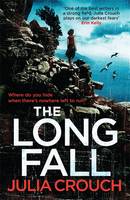A couple of my recent reviews from We Love This Book:
Susan Barker, The Incarnations (2014)
 Someone is watching Wang Jun, leaving letters in his taxi, claiming to be his soulmate. This person insists that they and Wang have known each other for a thousand years, and has stories to tell of their various incarnations throughout Chinese history, from the Tang Dynasty to Mao’s regime. In these stories, Wang and his correspondent variously love and hate each other, live together or die at the other’s hand. Back in 21st Century Beijing, Wang has his suspicions about who is writing these letters, though confirming them might drive his family apart.
Someone is watching Wang Jun, leaving letters in his taxi, claiming to be his soulmate. This person insists that they and Wang have known each other for a thousand years, and has stories to tell of their various incarnations throughout Chinese history, from the Tang Dynasty to Mao’s regime. In these stories, Wang and his correspondent variously love and hate each other, live together or die at the other’s hand. Back in 21st Century Beijing, Wang has his suspicions about who is writing these letters, though confirming them might drive his family apart.
True to its title, the idea of “incarnations” runs all the way through Susan Barker’s third novel. It’s not just the various historical incarnations of Wang and his “soulmate” – there’s also the sense that a place can go through different incarnations (Wang has seen the city of Beijing change as the 2008 Olympics approach), and that the stages of a person’s life can function in the same way. Wang has experienced several upheavals in his life, and there are family secrets to be uncovered as well – and the gaps between these can seem as great as those between different eras of history.
Barker’s novel balances past and present, the grand sweep of history and the intensely personal, all wrapped up in brisk and densely evocative prose. You can never quite be sure where Wang’s story is going to turn next – not even after a thousand years.
Julia Crouch, The Long Fall (2014)
 In 1980, Emma James is eighteen, travelling in Greece before going to university, when an event occurs that will permanently alter the course of her life. In the present day she is Kate Barratt, charity figurehead and wife of a wealthy hedge-fund manager, with the past safely behind her. At least, that’s what Kate thinks: but she discovers that a figure from the old days is back, and has the seemingly limitless capability to threaten her and those she holds dear.
In 1980, Emma James is eighteen, travelling in Greece before going to university, when an event occurs that will permanently alter the course of her life. In the present day she is Kate Barratt, charity figurehead and wife of a wealthy hedge-fund manager, with the past safely behind her. At least, that’s what Kate thinks: but she discovers that a figure from the old days is back, and has the seemingly limitless capability to threaten her and those she holds dear.
There’s an interesting theme of identity running through The Long Fall: at a time of life when people are finding out who they are, Emma has to change herself, radically and unexpectedly. As Kate, she appears to have built up a happy life (albeit one marked by personal tragedy); other characters have not been so lucky. Kate finds herself questioning how far she has put up a façade, in her marriage and as the face of her charity.
Then there is the plot, which Julia Crouch controls very well: first Emma’s travel diary, leading up to the tragedy that we glimpse in the opening pages, then Kate’s present-day nightmare. The pages turn, the revelations come along at a brisk pace, the sense of dread grows as Kate’s world is systematically undermined. All leads up to a conclusion that brings the narrative satisfyingly full-circle.
 Okay , so I’m reading Pen Pusher (‘Where new writing finds its voice’) for the first time – and a good read it is, too. It’s a varied selection of fiction, poetry, and non-fiction; but, as usual, I’ll be concentrating here on the prose fiction – which gives us:
Okay , so I’m reading Pen Pusher (‘Where new writing finds its voice’) for the first time – and a good read it is, too. It’s a varied selection of fiction, poetry, and non-fiction; but, as usual, I’ll be concentrating here on the prose fiction – which gives us:
Recent Comments